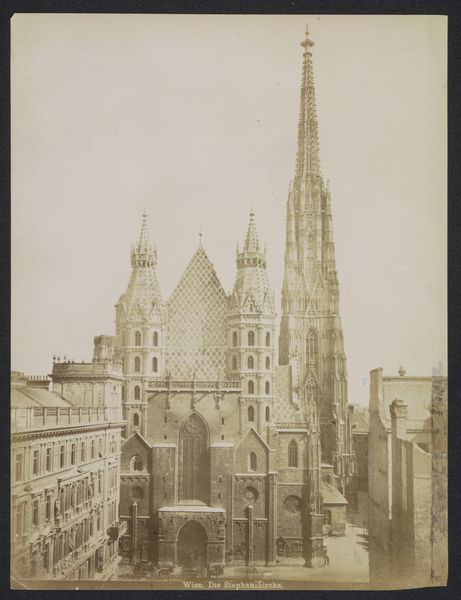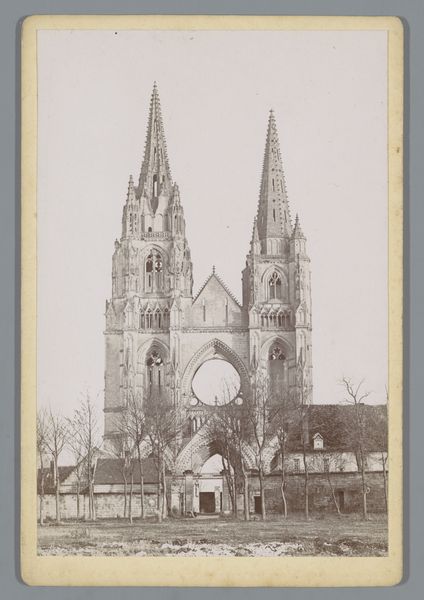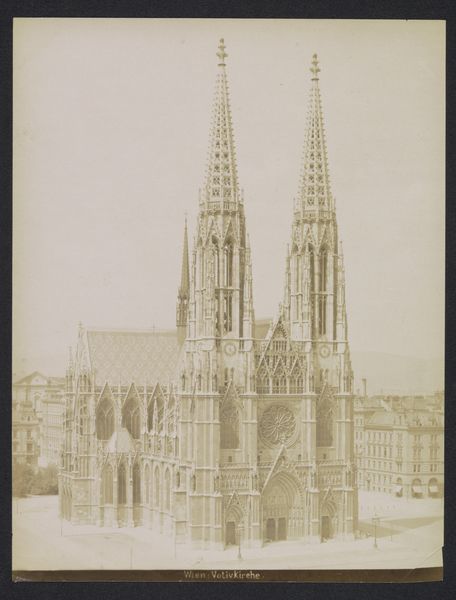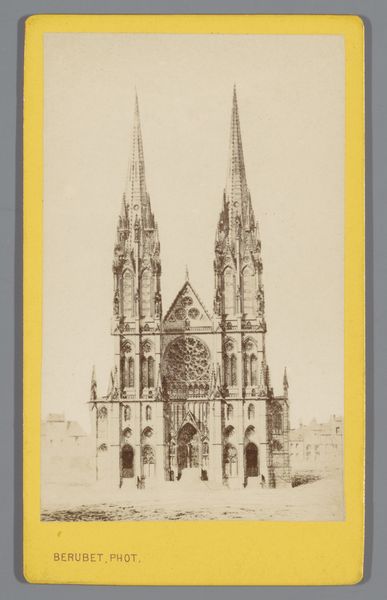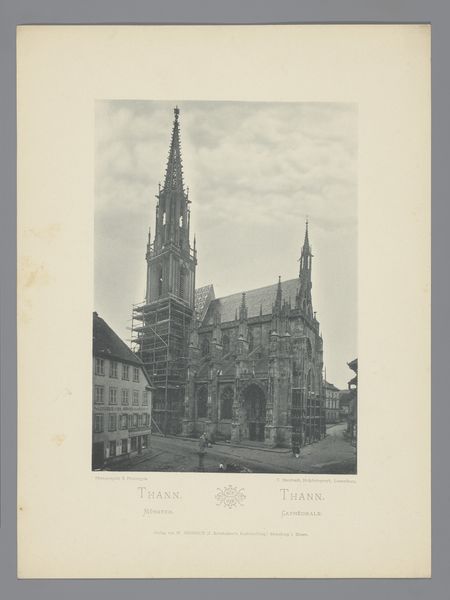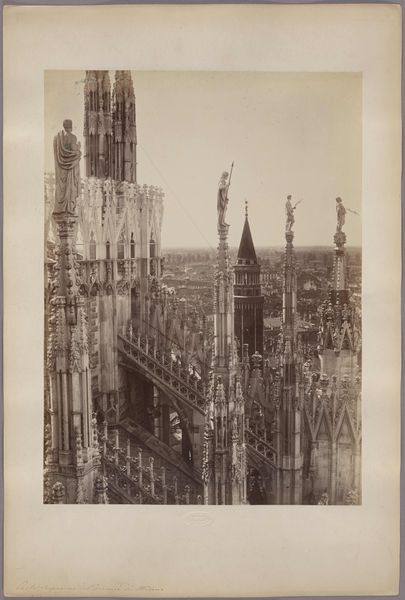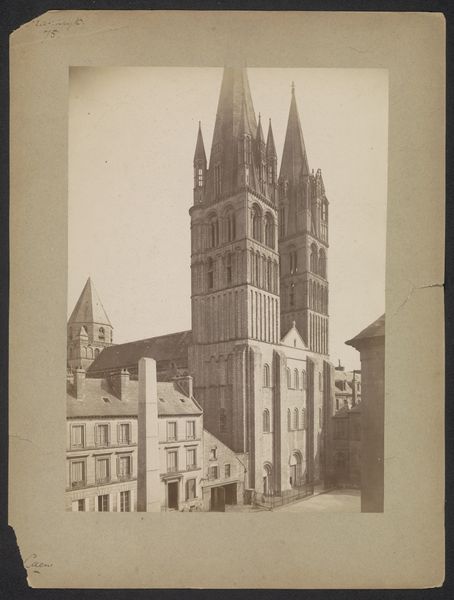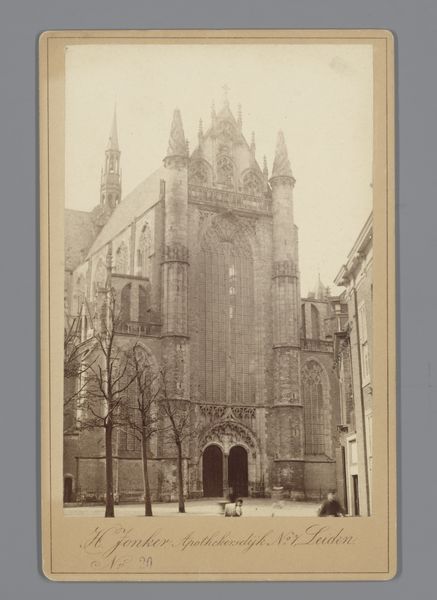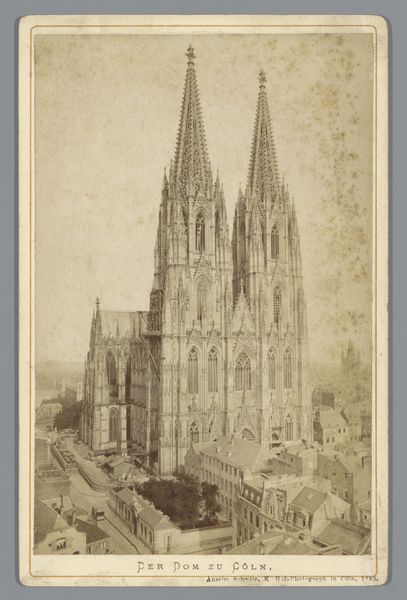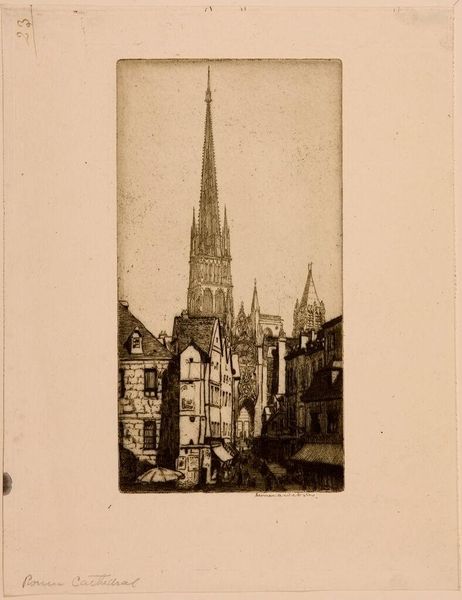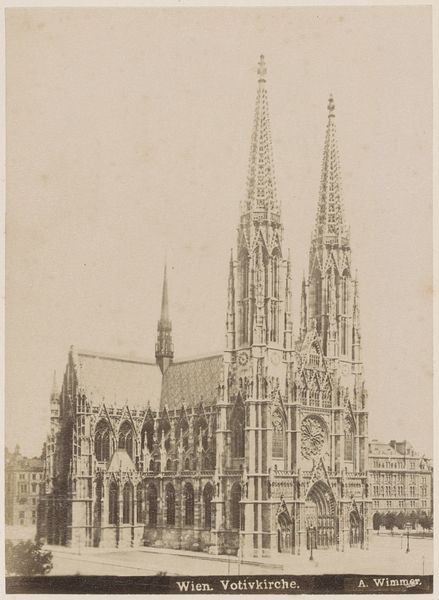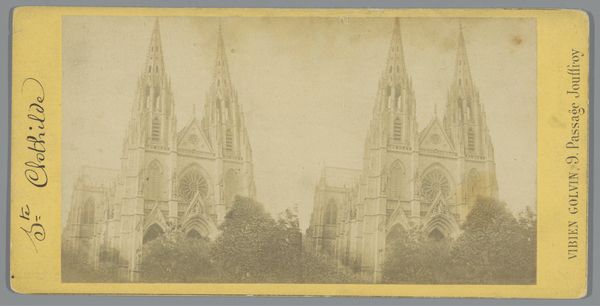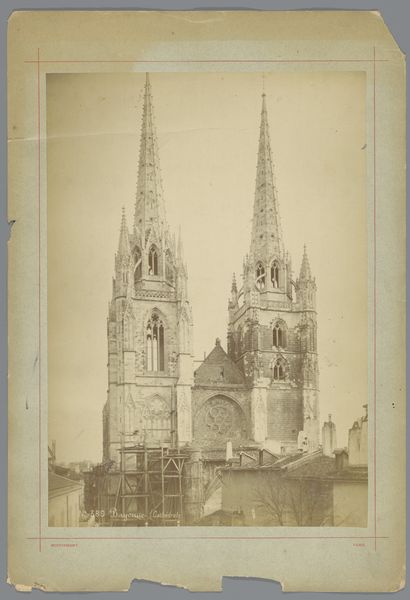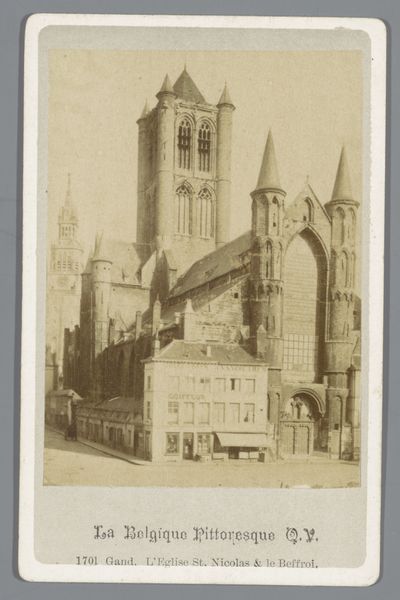
Dimensions: height 105 mm, width 61 mm
Copyright: Rijks Museum: Open Domain
This photograph of the Marktkerk in Wiesbaden, Germany, was made by Ludwig Bender. It is a gelatin silver print, a process that became widespread in the late 19th century. This printing method involves coating a paper base with light-sensitive silver halide crystals, allowing for finer detail and a wider tonal range than earlier photographic processes. Bender's choice of this technology speaks to a moment when photography was becoming increasingly accessible. The photograph’s sepia tone, a by-product of the chemical development, also evokes a sense of nostalgia, contrasting with the imposing Gothic Revival architecture of the church. The very act of capturing the Marktkerk through photography democratizes its image, making it available for mass consumption as a souvenir or a postcard. By understanding the materials and processes behind this photograph, we can appreciate how Bender’s work participates in broader trends of industrialization and consumption. It blurs the boundaries between art, documentation, and commerce.
Comments
No comments
Be the first to comment and join the conversation on the ultimate creative platform.
